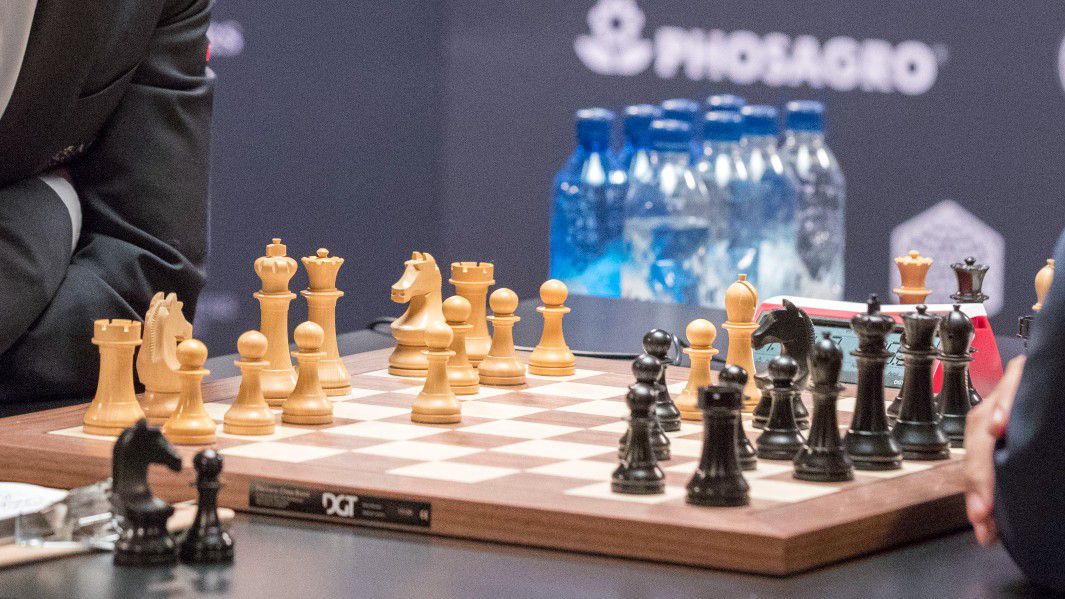An American chess grandmaster likely cheated in more than 100 games on Chess.com, including several in which prize money was awarded, according to a report released Tuesday by the popular online platform.
What You Need To Know
- An American chess grandmaster likely cheated in more than 100 games on Chess.com, including several in which prize money was awarded, according to a report released Tuesday by the popular online platform
- The report comes after Magnus Carlsen, the reigning five-time world champion, accused Hans Moke Niemann, 19, of cheating during an in-person tournament last month in St. Louis, an allegation that has rocked the chess world.
- Niemann admitted to cheating in an online tournament when he was 12 years old and again in “random” and “unrated” games when he was 16, but denied cheating in any prize-money events since he was 12 or during any in-person events ever
- Chess.com’s report contradicts his remarks about recent cheating online, but it says there is “a lack of concrete evidence” that he cheated in any over-the-board games
The report comes after Magnus Carlsen, the reigning five-time world champion, accused Hans Moke Niemann, 19, of cheating during an in-person tournament last month in St. Louis, an allegation that has rocked the chess world.
Carlsen surprisingly withdrew from the Sinquefield Cup the following day without explanation, sparking speculation that he believed Niemann had cheated. When the two met again weeks later in an online event, Carlsen quit the match after making a single move, viewed by many as a protest.
Carlsen finally ended his silence in a Sept. 26 statement, in which he explicitly accused Niemann of cheating.
“I believe that Niemann has cheated more — and more recently — than he has publicly admitted,” the Norwegian chess star said. “His over the board progress has been unusual, and throughout our game in the Sinquefield Cup I had the impression that he wasn’t tense or even fully concentrating on the game in critical positions, while outplaying me as black in a way I think only a handful of players can do. This game contributed to changing my perspective.”
In that match, Niemann upset Carlsen while playing with the black pieces, which is a disadvantage.
In an interview with the Saint Louis Chess Club last month, Niemann, who is from San Francisco, admitted to cheating once in an online tournament when he was 12 years old and again in “random” and “unrated” games when he was 16 in order to improve his rating so he could face stronger competition.
Niemann insisted he had not cheated in a prize-money event since he was 12.
He said he confessed when confronted by Chess.com and called the cheating the “single biggest mistake of my life.”
“What I want people to know about this is that I'm deeply, deeply sorry for my mistake,” Niemann said. “And I know that my actions have consequences, and I suffered those consequences. During that time, I completely stepped away from a very lucrative streaming career. I stopped playing in all events, and I lost a lot of close friendships and relationships that meant a lot to me.”
But Chess.com’s report contradicts his remarks. The website’s investigation concluded that Niemann likely cheated in 112 matches, including 93 in 2020, after he was 16. He also denied live-streaming any games in which he cheated, but the report says he cast 25 of those matches to online viewers.
The 72-page report said Niemann was banned from the site for a time.
To detect cheating, Chess.com compares moves a player made to those suggested by chess engines, which are capable of consistently beating the best human players; studies a player’s past performances; monitors a player’s behavior, including whether they had other web browsers open while playing; and consults with grandmaster fair-play analysts.
In a letter, included in the report, sent from Chess.com Chief Chess Officer Danny Rensch to Niemann after his comments in last month’s interview, Rensch said the website has “strong statistical evidence” that Niemann performed much better during online games in which he “toggled” between screens.
“[T]here always remained serious concerns about how rampant your cheating was in prize events,” Rensch’s letter added.
Spectrum News emailed an address for Niemann’s business inquiries seeking comment on the report but did not immediately receive a response.
Niemann also last month denied ever cheating in any in-person, or over-the-board, matches.
Chess.com’s report said there is “a lack of concrete evidence” that he cheated in any over-the-board games, including the one against Carlsen in St. Louis. The report, however, did note Niemann “has had a record-setting and remarkable rise in rating and strength.”
The International Chess Federation announced last week it is conducting its own investigation into the Niemann-Carlsen controversy.
Proving cheating at in-person events can be challenging because a grandmaster may only need assistance on a couple of well-timed moves to tilt a game to their advantage. Forms of cheating could include secretly using a phone in a restroom, wearing a small earpiece or receiving signals from someone in the audience.
Carlsen last month vowed never to play against Niemann again.
“I believe that cheating in chess is a big deal and an existential threat to the game,” he said in his statement. “I also believe that chess organizers and all those who care about the sanctity of the game we love should seriously consider increasing security measures and methods of cheat detection for over the board chess.
“We must do something about cheating, and for my part going forward, I don’t want to play against people that have cheated repeatedly in the past, because I don’t know what they are capable of doing in the future,” Carlsen added.




